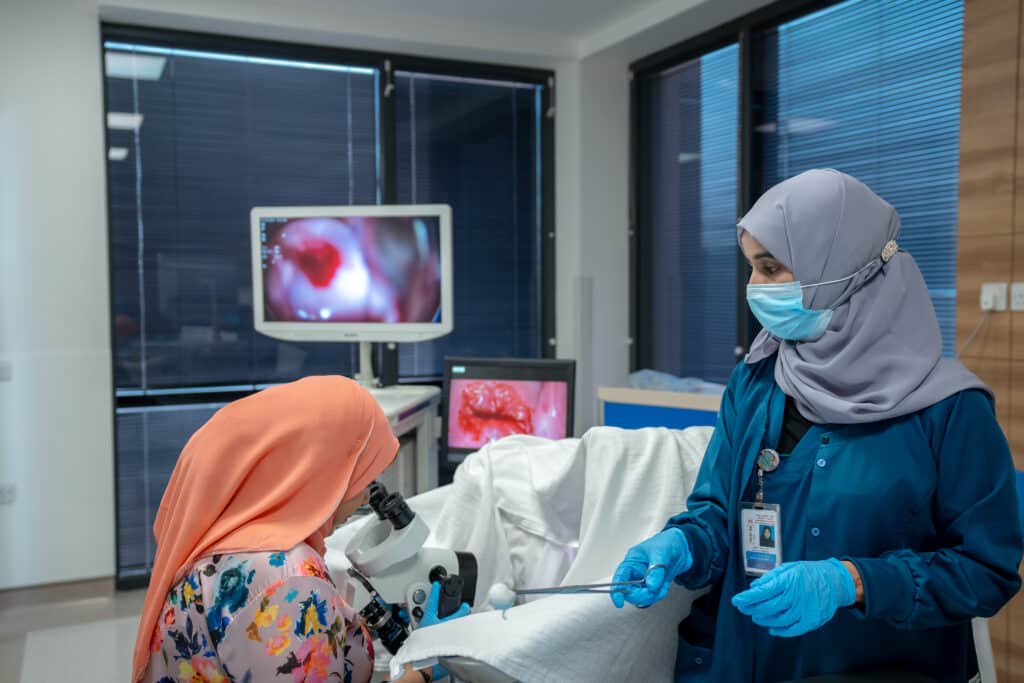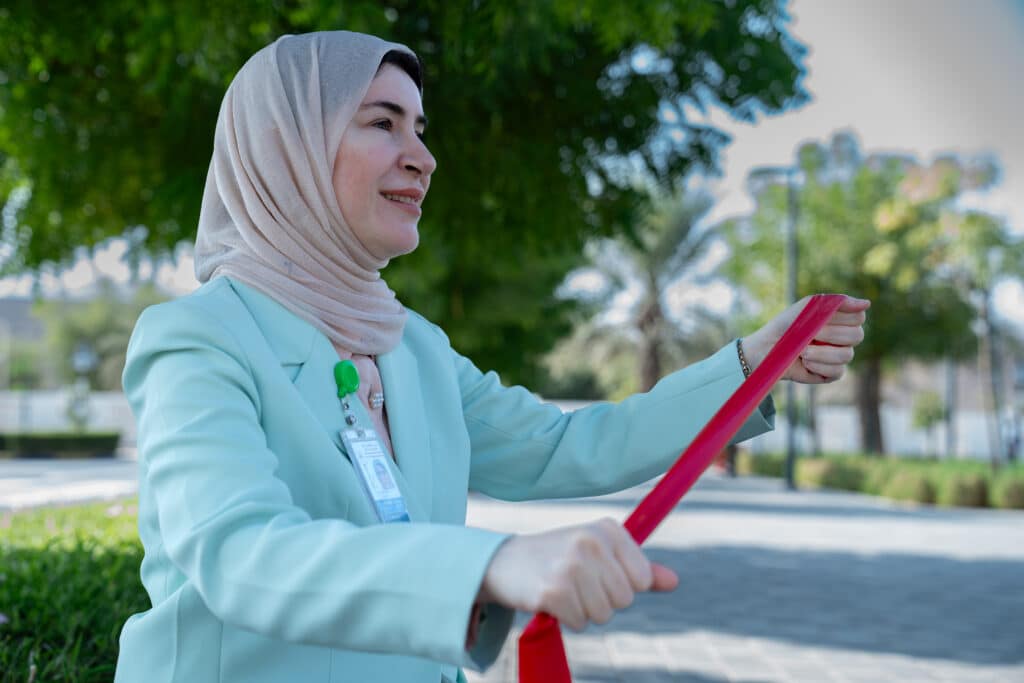


When women undergo complete mastectomy as part of breast cancer treatment, they face significant physical and psychological challenges that may persist for many years even after completing their breast cancer treatments; this can significantly negatively affect their personal and social quality of life.

Management of gynaecological cancers require integrated multi-disciplinary care. Besides the gynaecological, medical and radiation oncologists, multidisciplinary management requires clinical nurse specialists, geneticists and counsellors, psychiatrists, palliative care specialists, clinical pharmacists, clinical nutritionists, and physiotherapists. Using the case study of a patient who underwent treatment at the SQCCCRC, we write to highlight the role and importance of integrating physiotherapy in the overall management of patients with gynaecological cancers.

Imagine having the ability to look deep into our genetic code to uncover the secrets held within our DNA. This is no longer just a thought for the future, but a reality at the Sultan Qaboos Comprehensive Cancer Care and Research Center (SQCCCRC) in Oman. Our dedicated research scientists have introduced a groundbreaking test that reads our genetic blueprint, offering hope and innovation in cancer diagnosis and treatment research.

Improving the quality of life for cancer patients (living with cancer: beyond survival).
Diagnosing cancer presents enormous challenges, affecting not only physical health but also emotional, social, and spiritual health. Recognizing this, quality of life has become a key focus in cancer care, intending to help patients live well alongside treatment and recovery.

Worldwide, January is observed as Cervical Cancer Awareness Month. It is an excellent opportunity for the staff of Women Health Program at SQCCCRC to write a few lines to raise awareness about cancer of the cervix amongst community in Oman. Cervical cancer is preventable, while it develops, it can be detected early through screening, and if diagnosed, is one of the most treatable cancers, provided it is detected early and managed effectively. Cancers diagnosed in late stages can also be controlled with appropriate treatment and palliative care. Generally, the public is not aware of the scientific and medical developments in prevention, screening, and management of cervical cancer, hence, this article is intended to increase awareness about these aspects of cervical cancer.

Gynecological cancers have been increasingly seen as a public health concern due to several factors which are linked to the global rise in the incidence rates, the late presentation of the disease, and the high number of relapses. Additionally, the unique nature of the disease itself involving the most intimate female organs put an additional psychological burden on these women.

One of the major privileges of clinicians working in world-class research centres is the opportunity to participate in clinical research. Most patients who come to such institutions are willing to take part in meaningful studies that could potentially revolutionise medical practice and enhance their own and other patients’ treatment outcomes.

Malnutrition is a significant concern in the context of cancer care, an issue that extends far beyond mere weight loss. Although the term “malnutrition” often evokes images of extreme emaciation and declining scales, its impact on individuals grappling with cancer is a multifaceted problem that encompasses more than just the numbers on a scale. Malnutrition in cancer care settings is a complex issue characterized not only by weight loss but also by the depletion of vital nutrients, deterioration of overall health, and its profound influence on treatment outcomes and the well-being of patients. Irrespective of the malnutrition definition, it’s consistently associated with poorer outcomes, including extended hospital stays and an increased risk of readmissions within 30 days. This article delves into the intricate nature of malnutrition in cancer care settings and underscores the critical need for a comprehensive approach in addressing this issue.

What do you know about hepatocellular carcinoma in Oman?
Approximately 60 cases of hepatocellular carcinoma (HCC) were detected in Oman in 2019, according to the latest statistics from the Ministry of Health, while the actual number is higher. Approximately 85% of HCC cases occurs in the presence of damaged liver parenchyma including chronic viral hepatitis B, fatty liver disease and liver cirrhosis which has many causes itself. While 15% of HCC cases occurs in normal liver.

Input your search keywords.